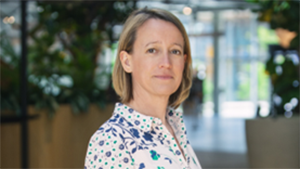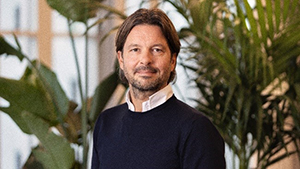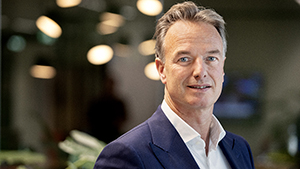COP climate conferences
COP is the United Nations Conference of the Parties. It’s an annual global meeting where world leaders, scientists, NGOs and civil society leaders come together to discuss climate change. At ING we’re committed to teaming up with others to help tackle climate change and that’s why COP is an important date on ING’s sustainability calendar.

COP30 in Brazil
This year COP30 – the 30th United Nations Conference of the Parties (COP) - will be held in close proximity to the Amazon rainforest on 10 – 21 November 2025, in Belém, Brazil and has been billed as the “nature COP”.

“COP30 is about how the world turns ambition into action. I am there because ING wants to play a leading role in accelerating the low-carbon transition.
Alongside partnering with our clients and customers to support them in driving down their emissions and building up future-proof business models, we want to work together with the stakeholders needed to put proper systems change into motion. This is how we both ensure the resilience and commercial success of our business and make a positive contribution to society’s efforts to tackle climate change.”
- Anne-Sophie Castelnau, ING global head of Sustainability

“Sustainability isn’t a separate agenda for us — it’s part of how we do business. Our path is guided by science, and progress depends on partnership. In the lead-up to COP30 in Brazil, I’ll be engaging with clients on how we turn climate ambitions into financed outcomes that make a real difference.”
- Mark Pieter de Boer, ING chief commercial officer, Wholesale Banking

From Belém to the boardroom – what COP30 means for climate leadership
ING Economists Gerben Hieminga and Coco Zhang from THINK (ING's economic and financial analysis) share their views.
The UN climate conference in Belém has ignited a fierce debate and highlighted serious climate policy hurdles, before it has even begun. Despite these challenges, in the following article THINK explores the strategic benefits COP30 as a pivotal opportunity for meaningful boardroom conversations on carbon markets, sustainable finance and renewables.

Teaming up with our clients
Working with our clients to help finance the transition is where we as ING can have our biggest impact.
That’s why we’re meeting up with some of our corporate clients in the run up to COP 30 to discuss sustainability dilemmas.
São Paulo, 6 November
- ING client and stakeholder event hosted by Mark Pieter de Boer and Anne-Sophie Castelnau – We explore the theme: “The Sustainability Dilemma: Balancing Local Challenges and Global Complexities”.

ING @ COP in Belém
ING’s global head of Sustainability, Anne-Sophie Castelnau, will be contributing to:
11 November - 6:00 pm CET
- Multi-Stakeholder Approach to Accelerate the Transition to Low-Carbon, Resilient Buildings – the decarbonisation of the commercial & residential real estate sectors is a focus of ING’s sustainability approach. Sign up to join.
- UNEP FI event on the Circular Economy – We explore how banks can help build up and scale circular solutions.
13 November
- NBCC Frontrunners’ dinner – we share our view of the challenges & opportunities facing financial institutions in financing the transition.
15 November
- Systemic change in Shipping - Insights from the collaborative work we’re doing to help drive systems change in Shipping.
Climate action at ING
We recognise that we cannot drive systemic change alone. We need to partner with others to make a real difference and that’s one of the reasons we attend COP – to team up with relevant stakeholders and contribute to the discussions and resulting actions.
We believe we can make the biggest impact through our financing. We focus on three areas for action:
- To drive down emissions, our greatest opportunity to accelerate progress is through working with our large clients on their transitions to net-zero emissions.
- To build up a sustainable future, we’re stepping up our financing for the innovative technologies and solutions needed for a low-carbon world.
- To include everyone in the low-carbon transition, we want to find new ways to empower people to stay a step ahead on climate.

“As a major global bank, we support the economy, which means we can play a role in supporting our customers and clients in the present, while helping them to prepare for the future. There are those that say we’re not doing enough on climate and those that say we're doing too much. However, it’s not about making bold statements. It’s about aligning with the consensus of scientists and the goals of the Paris Agreement. It’s about understanding the intricacies of what’s holding back the systemic change that’s needed, figuring out what will help, knowing how we can best play our role, and then taking action to do so.”
- Steven van Rijswijk, CEO ING
See our climate action page or our Climate Update 2025 for more info.
Nature – an increasingly important topic
At ING, our sustainability strategy spans climate, nature and social agendas, recognising their interdependencies and how they affect each other, both positively and negatively.
Nature is a topic of increasing importance to us, and through our approach on nature, we aim to take impactful steps to contribute to halting and reversing nature loss.
At COP30 we’re particularly interested in understanding more about the landmark Tropical Forests Forever Facility (TFFF) proposes innovative financing model for conservation, and the role private finance can play in preserving crucial forest ecosystems. Being in Brazil, there is much to learn from local forest management approaches, especially those led by indigenous communities.
Society is transitioning to a low-carbon economy. So are our clients, and so is ING. We finance a lot of sustainable activities, but we still finance more that’s not. See how we’re progressing on our climate action section.
This website discusses one or more specific transactions and/or contains general statements about ING’s climate approach. The approach and criteria referred to on this website are intended to be applied in accordance with applicable law. Due to the fact that there may be different or even conflicting laws, the approach, criteria or the application thereof, could be different.
